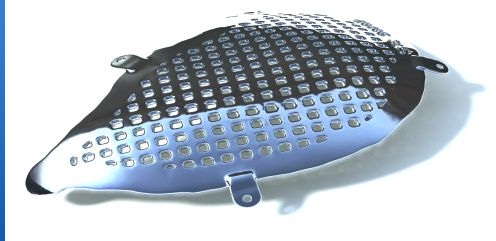
© Axellis Holdings, Inc. 2012

Consistency across all clinical disciplines
Axellis has developed a unique, commercially robust, secure, web-based platform with the capability to capture and process 3D data for multiple products and services, allowing clinical users to design and perform complex computations on a pay-as needed basis, saving space, personnel costs and assuring complete traceability with high quality product specification
Medical Planning Models, Implants and Surgical Guides.
Axellis digital reconstructions are based upon the clinical image data supplied in DICOM format to satisfy a number of surgical needs such as clinical guides, maxillofacial and cranioplasty implants, and surgical planning (medical) models. Reconstruction is undertaken in accordance with instructions provided by the surgical team during the online collaboration. Using the digital reconstruction tools appropriate to the request Axellis will provide data, either as images or viewable 3D data of the item to be supplied allowing alterations and changes to be made prior to manufacture.
Medical models are designed and fabricated using the data uploaded from 3D CT or MRI scans. Both stepped and spiral scans are suitable, though gantry tilt should be 0 degrees in both cases if possible.
Most scanner formats can be translated into the Axellis system.
Laboratory Models.
Patient specific models relating directly to the supplied DICOM data. Laboratory models can be easily cut or drilled and are sufficiently accurate for use when planning operations, creating templates or fabricating implants. Laboratory models are not suitable for handling in the operating theatre.
Theatre Models
Similar to Laboratory Models, Theatre Models relate directly to the DICOM data, are highly accurate and can be sterilised. The material has been tested to an FDA recognised standard (USP 23 Class VI) for handling by the surgical team and for patient contact under theatre conditions.
Cranial Defect Re-Contouring
Axellis provide a service to fill in and re-contour cranial defects. The DICOM data is used as the basis to provide a digital framework on which to sculpt the implantable device that preserves areas outside the defect.
Reconstructive Surgery




Digital imaging technology for dynamic
Orthopedic and Reconstructive Surgery.
Orthopedic and Reconstructive Surgery.
CLIENT GATEWAY
The Axellis Client Gateway provides
registered professional users with secure
access to proprietary software tools and
services where you can design, validate,
order, track and record your work.
registered professional users with secure
access to proprietary software tools and
services where you can design, validate,
order, track and record your work.
